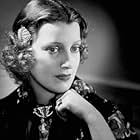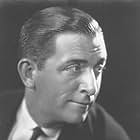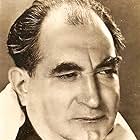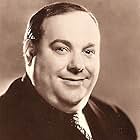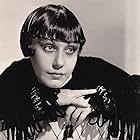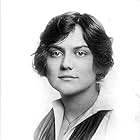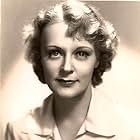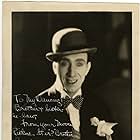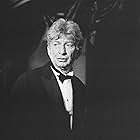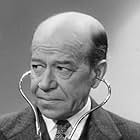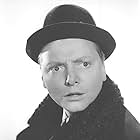VALUTAZIONE IMDb
7,2/10
3353
LA TUA VALUTAZIONE
Aggiungi una trama nella tua linguaWhen a small kingdom's main taxpayer leaves for Paris, its king dispatches a dashing count to win back her allegiance.When a small kingdom's main taxpayer leaves for Paris, its king dispatches a dashing count to win back her allegiance.When a small kingdom's main taxpayer leaves for Paris, its king dispatches a dashing count to win back her allegiance.
- Vincitore di 1 Oscar
- 1 vittoria in totale
Louis Adlon
- Wide Eyed Admirer
- (non citato nei titoli originali)
Trama
Lo sapevi?
- QuizDuring a recent showing on TCM, it was stated that Jeanette MacDonald and Maurice Chevalier did not get along on this film. He called her a "prude" and she called him "a bottom pincher". Their relationship had been deteriorating for some time, and this was the last film they appeared in together.
- BlooperWhen Sonia tears off a calendar sheet, it reads "Thursday, May III, 1885". However, May 3, 1885 was actually a Sunday.
- Versioni alternativeA French version of this film, also starring Maurice Chevalier and Jeanette MacDonald, was filmed at the same time as this one.
- ConnessioniFeatured in Monsieur Cinéma: Episodio datato 23 gennaio 1972 (1972)
- Colonne sonoreGirls, Girls, Girls
by Franz Lehár
Recensione in evidenza
When Jeanette MacDonald left Paramount and signed with her new studio of MGM it was her wish that she not do any more films with Maurice Chevalier. Though the three films she did for that studio with him were very successful, the two of them did not get along at all. She thought he was a rake, he thought she was frigid.
So imagine her chagrin when she learned that her first MGM film, The Merry Widow which has some great songs for a soprano she would be co-starred once again with Chevalier. He wasn't exactly thrilled either, it was known he was hoping to do the film with Grace Moore. But they both went back to work for Ernst Lubitsch who had guided them in The Love Parade and One Hour With You. Lubitsch got the best out of them, especially Jeanette. There are some who say her work at Paramount with him is far superior to anything she would do at MGM, even with Nelson Eddy.
Jeanette's the richest woman in the tiny kingdom of Marshovia, her taxes bankroll the kingdom. But she's bored there and cynical about all the men courting her for her money. The king and queen of Marshovia, George Barbier and Una Merkel, want to keep her Marshovian money in Marshovia so they send the most romantic guy they know, captain of the guard Maurice Chevalier as Count Danilo who cuts quite a romantic figure and romantic swath among the ladies.
Of course he falls in love, but he's still got a roving eye and in his own way Maurice is as cynical as Jeanette. It will take some doing to get these two together.
The Merry Widow had its American premiere on Broadway in 1907 and ran for 416 performances. The basic numbers of the score that Franz Lehar wrote are retained. My favorite is one of the best operetta numbers ever written for a soprano, Vilia. Jeanette sings it beautifully as she does the famous Merry Widow Waltz. And who could sing about the joys of courting Girls Girls Girls while hanging out at Maxim's than Maurice Chevalier?
Lubitsch does a grand job at getting some real comic moments out of Edward Everett Horton as the Marshovian Ambassador in Paris who together with Herman Bing. I do so love the scene where Bing is translating the diplomatic codes for Horton with the king's editorial comments.
Chevalier and MacDonald never worked together again, but they certainly went out on a high note (no pun intended) with The Merry Widow.
So imagine her chagrin when she learned that her first MGM film, The Merry Widow which has some great songs for a soprano she would be co-starred once again with Chevalier. He wasn't exactly thrilled either, it was known he was hoping to do the film with Grace Moore. But they both went back to work for Ernst Lubitsch who had guided them in The Love Parade and One Hour With You. Lubitsch got the best out of them, especially Jeanette. There are some who say her work at Paramount with him is far superior to anything she would do at MGM, even with Nelson Eddy.
Jeanette's the richest woman in the tiny kingdom of Marshovia, her taxes bankroll the kingdom. But she's bored there and cynical about all the men courting her for her money. The king and queen of Marshovia, George Barbier and Una Merkel, want to keep her Marshovian money in Marshovia so they send the most romantic guy they know, captain of the guard Maurice Chevalier as Count Danilo who cuts quite a romantic figure and romantic swath among the ladies.
Of course he falls in love, but he's still got a roving eye and in his own way Maurice is as cynical as Jeanette. It will take some doing to get these two together.
The Merry Widow had its American premiere on Broadway in 1907 and ran for 416 performances. The basic numbers of the score that Franz Lehar wrote are retained. My favorite is one of the best operetta numbers ever written for a soprano, Vilia. Jeanette sings it beautifully as she does the famous Merry Widow Waltz. And who could sing about the joys of courting Girls Girls Girls while hanging out at Maxim's than Maurice Chevalier?
Lubitsch does a grand job at getting some real comic moments out of Edward Everett Horton as the Marshovian Ambassador in Paris who together with Herman Bing. I do so love the scene where Bing is translating the diplomatic codes for Horton with the king's editorial comments.
Chevalier and MacDonald never worked together again, but they certainly went out on a high note (no pun intended) with The Merry Widow.
- bkoganbing
- 9 apr 2009
- Permalink
I più visti
Accedi per valutare e creare un elenco di titoli salvati per ottenere consigli personalizzati
- How long is The Merry Widow?Powered by Alexa
Dettagli
Botteghino
- Lordo Stati Uniti e Canada
- 329.180 USD
- Lordo in tutto il mondo
- 6.014.620 USD
- Tempo di esecuzione1 ora 39 minuti
- Colore
- Proporzioni
- 1.37 : 1
Contribuisci a questa pagina
Suggerisci una modifica o aggiungi i contenuti mancanti













